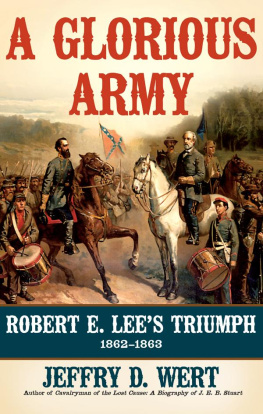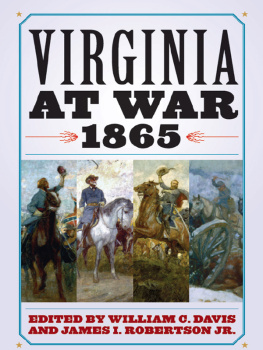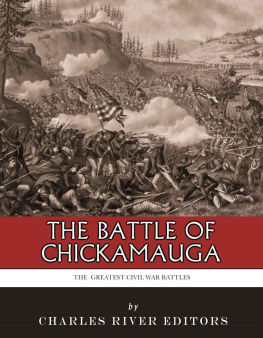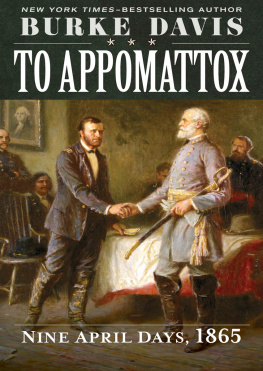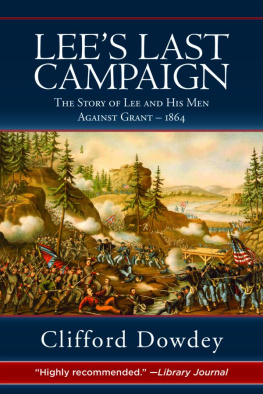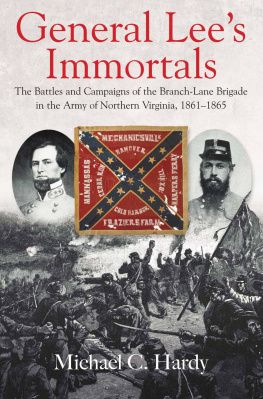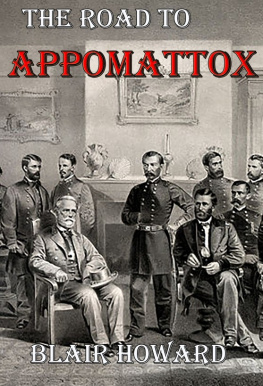Civil War AmericaGary W. Gallagher, editor
LEES MISERABLES.I want a copy of that book about Gen. Lees poor miserable soldiers faintin, said an old lady in West & Johnstons bookstore, the other day. The clerk was dumb-founded. One of the proprietors was sent for, made the old lady repeat her request, turned pale, rolled his eyes wildly, scratched his head and at last exclaimed, Oh! ah! yes! I know what it is now you mean Les Miserables. Fantine by Victor Hugo. No, I dont, replied the old lady. I know nothing and care nothing about Lays Meeserarbuls. I want Lees Miserables faintin. As nothing else would satisfy her, she was allowed to depart without the book she so eagerly sought.
Richmond Whig, 12 June 1863
They called themselves Lees Miserables. That was a grim piece of humor, was it not, reader? And the name had a somewhat curious origin. Victor Hugos work, Les Miserables, had been translated and published by a house in Richmond; the soldiers, in the great dearth of reading matter, had seized upon it; and thus, by a strange chance the tragic story of the great French writer, had become known to the soldiers in the trenches. Thus, that history of The Wretched, was the pabulum of the South in 1864; and as the French title had been retained on the backs of the pamphlets, the soldiers, little familiar with the Gallic pronunciation, called the book Lees Miserables! Then another step was taken. It was no longer the book, but themselves whom they referred to by that name. The old veterans of the army thenceforth laughed at their miseries, and dubbed themselves grimly Lees Miserables! The sobriquet was gloomy, and there was something tragic in the employment of it; but it was applicable. Like most popular terms, it expressed the exact thought in the mind of every onecoined the situation into a phrase.
John Esten Cooke, Mohun; or, The Last Days of Lee and His Paladins (1869)
1998 The University of North Carolina Press
All rights reserved
Manufactured in the United States of America
Set in Bell and Clarendon types
by Keystone Typesetting
Publication of this work was aided by a grant included in the
Mrs. Simon Baruch University Award of the United Daughters
of the Confederacy.
The paper in this book meets the guidelines for permanence and
durability of the Committee on Production Guidelines for Book
Longevity of the Council on Library Resources.
Library of Congress Cataloging-in-Publication Data
Power, J. Tracy.
Lees miserables : life in the Army of Northern Virginia from the
Wilderness to Appomattox / by J. Tracy Power.
p. cm. (Civil War America)
Includes bibliographical references (p.) and index.
ISBN 0-8078-2392-9 (cloth: alk. paper)
ISBN-13: 978-0-8078-5414-3 (pbk.: alk. paper)
1. Confederate States of America. Army of Northern Virginia
Military life. 2. SoldiersConfederate States of America
History. 3. Lee, Robert E. (Robert Edward), 1807-1870. 4. United
StatesHistoryCivil War, 1861-1865Regimental histories.
I. Title. II. Series.
E470.2.P69 1998
973.7455dc21 97-17724
CIP
04 03 02 01 00 7 6 5 4 3
For my parents, James Charley Power Jr. and Claudett Fagan Power
Contents
Maps and Illustrations
Maps
The Overland Campaign: The Wilderness to Cold Harbor, MayJune 1864
The Shenandoah Valley Campaign, 1864
The Petersburg-Richmond Front, June 1864-April 1865
The Appomattox Campaign, 1865
Illustrations
Pvts. William T. and Henry M. Bailey, Company C, 16th Georgia
Sgt. William Henry Edwards, Company H, 4th North Carolina Cavalry
Capt. Ralph Emms Elliott, Company I, 2d South Carolina
Capt. Benjamin Wesley Justice, commissary, MacRaes Brigade
Pvt. Joseph Fauber Shaner, Rockbridge Artillery
Sgt. George Cleveland Smith, Company C, 12th Georgia
Pvt. Levi David Bedingfield, Company G, 35th North Carolina
Pvt. Alfred Newton Proffit, Company D, 18th North Carolina
Lt. Jesse Levi Furgurson, Company C, 32d North Carolina
Preface
In May 1864, while the vicious battles at Spotsylvania still raged and not long before the bloody fighting at Cold Harbor, the Richmond Whig published an editorial on the Army of Northern Virginia. The Whigs editors claimed, It would take a historian years to tell the bare story of their deeds, and when that was done, complimentary comment would be almost ridiculous. Books and articles on the armys major and minor campaigns and officers appear at the rate of several dozen a year, as the troops often referred to simply as Lees army have never lacked attention from students of the Civil War.
The literature published to date on the Army of Northern Virginia, however, is only a fraction of the more than 50,000 books written about the warat a rate of almost a book published a day for every day since the war ended. David Donald, writing almost forty years ago, observed, There must be more historians of the Civil War than there were generals fighting in it. About the same time Clifford Dowdey commented that An impression seems to exist that Civil War history, in contrast to all others, consists of a body of immutable facts, and all left to do is to present this material in a different wayor, as some say, rehash. That impression, which not only persists but has even gained momentum in the years since 1960, is no more valid now than it was then.
Most military history is written about battles and leaders, and Civil War history is certainly no exception. But comparatively little substantive research has centered on the experiences of specific armies or their component units, on field, staff, or company officers, or on noncommissioned officers and the rank and file. The pioneeringand still unsurpassed general studies in the field of Civil War soldier life are Bell Irvin Wileys The Life of Johnny Reb and The Life of Billy rank, published in 1943 and
Since 1985, however, several new books have added significantly to our knowledge and understanding of the wars participants. Their interpretations are most often based on evidence in soldiers letters and diaries, postwar reminiscences, memoirs, and unit histories. Most of them take a general view of Civil War soldiers, whereas a few focus on specific armies or units. Among the best of these recent studies are Joseph T. Glatthaars The March to the Sea and Beyond and Forged in Battle, Reid Mitchells Civil War Soldiers and The Vacant Chair, Randall C. Jimersons The Private Civil War, Larry J. Daniels Soldiering in the Army of Tennessee, and James M. McPhersons What They Fought For, 18611865 and For Cause and Comrades. Just as Wileys earlier works were characterized by a generous sampling of soldiers letters and diaries, these recent books are notable for their reliance onand effective use ofunpublished manuscript material surviving in countless public and private collections.
The potential for creative research in and interpretation of Civil War manuscripts is virtually unlimited. In no American war before or since did so large a proportion of the population leave home for an extended period and produce such a detailed record of its experiences in the form of correspondence, diaries, journals, and other wartime papers. Earl J. Hess has reminded us: Whether it is a narrative of a battle or an analysis of the mind of the soldier, personal accounts are the essential foundations of good studies of the war.... The historians work is ephemeral, it will necessarily be superseded by another scholars book. But the words of one who personally experienced the war has a special, unique value that transcends whatever interpretation is currently in vogue.


